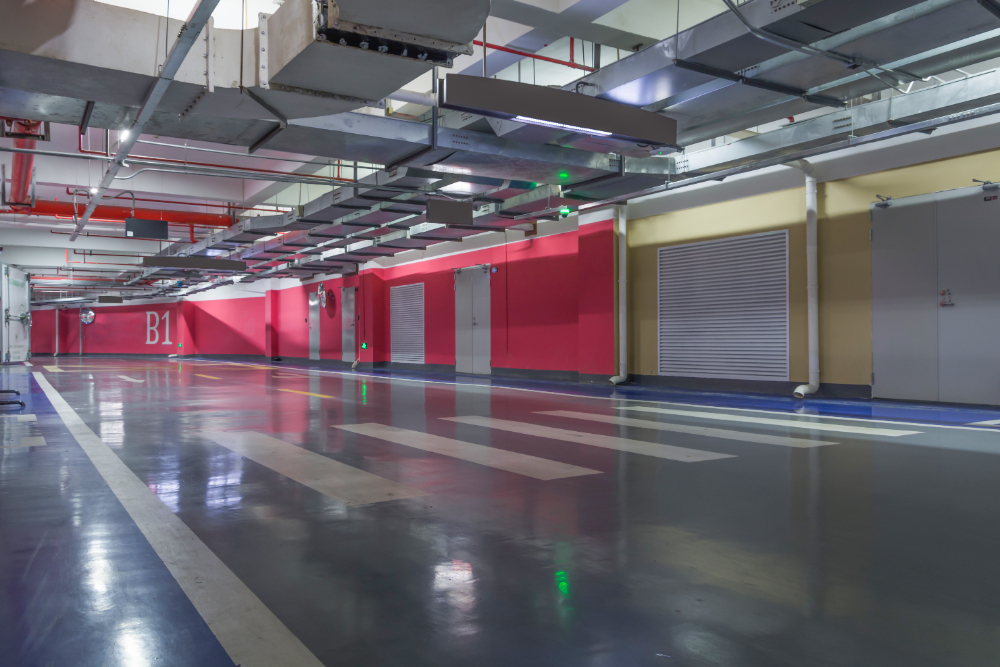As a property owner who has a garage, you want to know if it is worth insulating it.
In the summer, attached garages are most likely radiating heat into your house. In the winter, attached rooms feel really cold. If these are happening to you, then your garage needs insulation.
Garages often serve as versatile spaces for storage, work, or leisure activities, but their comfort and functionality can be greatly influenced by whether they are insulated. While insulation is a standard feature for living spaces, many homeowners question whether it is necessary for a garage.
The answer depends on various factors, including the garage’s purpose, climate, and connection to the home. This article explores the benefits, considerations, and methods of insulating a garage to help you determine if it is the right choice for your property.
The Role of Insulation in Temperature Regulation
Insulation acts as a barrier against heat transfer, keeping a space warmer in winter and cooler in summer. In uninsulated garages, temperature fluctuations can be significant, often reflecting the extremes of the outdoor climate. For homeowners living in areas with harsh winters or scorching summers, an uninsulated garage can become an uncomfortable and inefficient space.
By adding insulation, you create a more stable and temperate environment, which can be particularly beneficial if the garage is used as a workspace, hobby area, or gym. Temperature regulation also protects stored items such as tools, vehicles, and seasonal equipment from damage caused by extreme heat or cold. For garages attached to homes, insulation can prevent cold air from seeping into adjacent living spaces, reducing heating and cooling costs.
The effectiveness of insulation depends on the materials used and how well it is installed. Common options include fiberglass batts, spray foam, and rigid foam boards, each with its own benefits and drawbacks. Choosing the right insulation material for your garage involves considering its intended use, budget, and the level of thermal protection required.
Energy Efficiency and Cost Savings
One of the most compelling reasons to insulate a garage is the potential for improved energy efficiency. For attached garages, temperature fluctuations can affect the overall energy performance of the home. Heat loss or gain through the garage walls, ceiling, and door can place additional strain on heating and cooling systems, leading to higher utility bills.
Insulating the garage can significantly reduce this energy transfer, especially if the garage shares walls or ceilings with living spaces. Even if the garage is detached, insulation can still be valuable in reducing the workload on standalone heating or cooling units installed in the space. This is particularly relevant for homeowners who have converted their garage into a guest room, office, or recreational area.
While the upfront cost of insulation may seem daunting, the long-term savings on energy bills often justify the investment. By maintaining a more consistent indoor temperature, homeowners can experience reduced wear and tear on HVAC systems, contributing to lower maintenance and replacement costs over time.
Protecting Valuables and Equipment
Garages often serve as storage spaces for a wide range of items, including tools, vehicles, bicycles, and seasonal decorations. Insulation can play a critical role in protecting these belongings from the effects of temperature and humidity fluctuations.
In cold climates, uninsulated garages can expose vehicles and equipment to freezing temperatures, potentially causing engine fluids to thicken and batteries to lose charge. Similarly, in hot and humid conditions, metal tools and equipment can be prone to rust and corrosion. Insulating the garage helps regulate temperature and moisture levels, preserving the condition of stored items.
For those who use their garage as a workshop or creative space, insulation enhances the environment, making it more comfortable and conducive to productivity. A well-insulated garage can also provide a buffer against external noise, creating a quieter atmosphere for activities that require focus or precision.
Addressing Common Misconceptions
Many homeowners believe that garage insulation is unnecessary because garages are not traditionally considered living spaces. However, this perspective overlooks the increasing versatility of garages in modern homes. Today, garages are often repurposed for activities ranging from exercise to home offices, making insulation a worthwhile consideration.
Another common misconception is that insulation is only necessary in cold climates. While insulation does help retain heat in winter, it also prevents excessive heat from entering during summer, making it valuable in all climates. The ability to control temperature and humidity is beneficial year-round, regardless of geographic location.
Finally, some homeowners may assume that garage insulation is a costly and complex project. While the cost varies based on the size of the garage and the type of insulation, many options are budget-friendly and easy to install. Additionally, the long-term savings on energy bills and the enhanced functionality of the space often outweigh the initial investment.
Insulation Options for Garages
When insulating a garage, several materials are available, each suited to different needs and budgets. Fiberglass batts are among the most common choices due to their affordability and ease of installation. They are particularly effective for insulating walls and ceilings, provided they are installed with proper vapor barriers to prevent moisture buildup.
Spray foam insulation is another popular option, offering superior thermal protection and air sealing capabilities. This material expands upon application, filling gaps and cracks that could otherwise allow air leakage. While spray foam is more expensive than fiberglass, its energy efficiency and durability make it a valuable investment for homeowners seeking high performance.
Rigid foam boards provide a balance between cost and effectiveness, offering excellent insulation for walls, ceilings, and garage doors. These boards are lightweight, easy to cut, and resistant to moisture, making them ideal for damp or humid environments. For homeowners seeking a sustainable option, cellulose insulation made from recycled materials can be a suitable choice.
The Importance of Garage Door Insulation
When insulating a garage, the door is a critical component that should not be overlooked. Traditional garage doors are often made of thin metal or wood, offering little to no thermal resistance. Insulating the door can significantly improve the overall energy efficiency and comfort of the garage.
Garage door insulation kits are widely available and typically include foam panels or reflective insulation that can be cut to fit the door’s sections. Some homeowners choose to replace their existing garage door with an insulated model, which combines thermal protection with enhanced durability and noise reduction.
In addition to insulation, weather-stripping around the edges of the door can help seal gaps and prevent drafts. These measures collectively ensure that the garage door contributes to a stable and comfortable indoor environment, rather than being a weak point in the insulation system.
Ventilation and Moisture Control
While insulation is essential for temperature regulation, it is equally important to address ventilation and moisture control in the garage. Poor ventilation can lead to a buildup of humidity, which can compromise the effectiveness of insulation and create conditions for mold growth.
Installing vents or exhaust fans can help maintain proper airflow and prevent moisture accumulation. Dehumidifiers are another effective solution, particularly in regions with high humidity levels. Ensuring that the garage is well-sealed while allowing for adequate ventilation creates a balanced and healthy environment.
Combining insulation with effective ventilation systems not only enhances comfort but also protects the structural integrity of the garage. By managing temperature and moisture levels, homeowners can maximize the longevity and functionality of their garage space.
Balancing Cost and Benefits
When deciding whether to insulate a garage, it is important to weigh the costs against the potential benefits. For homeowners who use their garage solely for vehicle storage, the need for insulation may be less pressing. However, for those who rely on their garage as a multifunctional space, the investment in insulation is often well worth it.
Cost considerations should include not only the price of materials and installation but also the potential savings on energy bills and maintenance. Additionally, insulating a garage can increase the resale value of a property, particularly in regions where climate control is a desirable feature.
Homeowners should also consider the long-term benefits of a comfortable and versatile garage. Insulation enhances the usability of the space, making it suitable for a wide range of activities and ensuring that it remains a valuable asset to the home.
Conclusion
Insulating a garage is a practical and beneficial investment for many homeowners. If your goal is to improve energy efficiency, protect stored items, or create a comfortable workspace, insulation provides numerous advantages. Homeowners can transform their garage into a functional and inviting space by selecting the right materials and addressing critical components such as the door and ventilation.
While not every garage requires insulation, its value becomes clear when considering the long-term benefits in terms of comfort, energy savings, and property value. With proper planning and execution, insulating a garage can enhance both the functionality of the space and the overall quality of life for its occupants.

